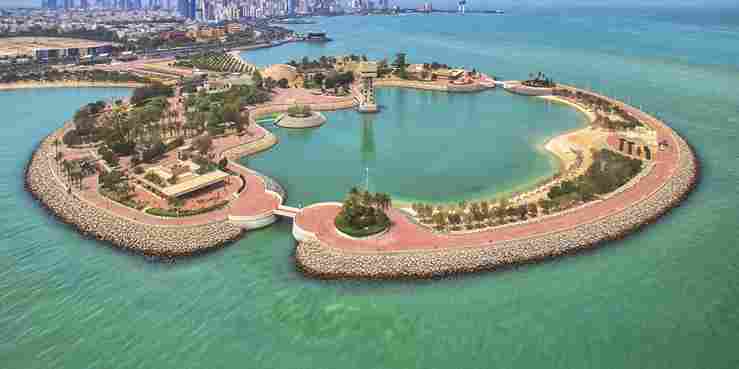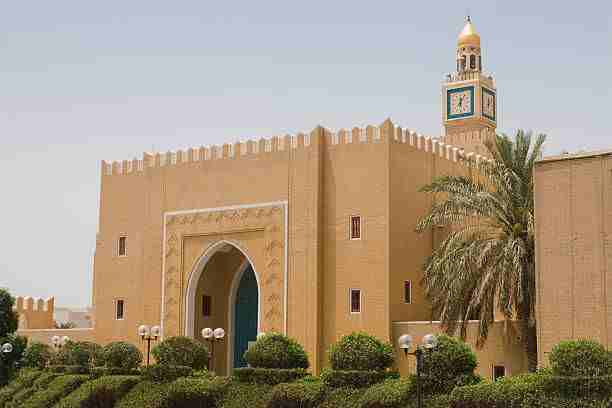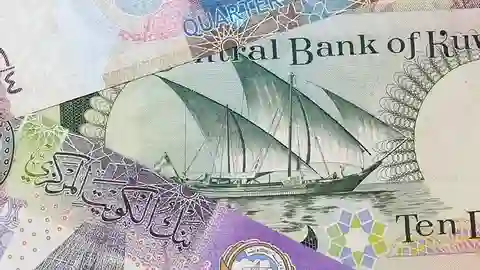Time In Kuwait & Dubai:Time an abstract concept intricately woven into the fabric of human civilization serves as a fundamental aspect of our daily lives governing our schedules interactions and perceptions of reality.
Across the globe diverse cultures and regions adhere to their respective time zones each synchronized with the rotation of the Earth. In the Middle East two prominent cities Kuwait and Dubai stand as bustling hubs of commerce culture and innovation. However despite their geographical proximity these cities operate within distinct time zones giving rise to intriguing differences in their temporal landscapes.
In this article we embark on a journey to explore the time difference between Kuwait and Dubai during the year 2024.

Understanding Time Zones
Before delving into the specific time difference between Kuwait and Dubai it is imperative to grasp the concept of time zones. Time zones are geographical regions that follow a uniform standard time typically determined by the longitudinal lines of the Earth.
The planet is divided into 24 time zones each approximately 15 degrees of longitude apart with Greenwich Mean Time (GMT) serving as the reference point.
Factors Influencing Time Zones
Several factors contribute to the establishment of time zones including geographical location historical conventions economic considerations and political boundaries. In the case of Kuwait and Dubai their respective time zones are influenced by a combination of these factors.

- Geographical Location:
- The Earth’s rotation and longitudinal divisions play a significant role in determining time zones with regions closer to the Prime Meridian adopting earlier time zones and those farther east or west adjusting accordingly.
- Historical Conventions:
- Time zones often reflect historical agreements and conventions established over time influenced by factors such as colonialism trade routes and transportation networks.
- Economic Considerations:
- Economic factors including trade relationships industrial development and global commerce can influence decisions regarding time zone boundaries to facilitate coordination and efficiency in business operations.
- Political Boundaries:
- National borders and political divisions sometimes intersect with time zone boundaries reflecting geopolitical considerations and administrative jurisdictions.
- Daylight Saving Time:
- Some regions observe Daylight Saving Time (DST) whereby clocks are adjusted forward in spring and backward in autumn to maximize daylight during evenings affecting local time calculations.
- International Relations:
- Time zone decisions may be influenced by diplomatic considerations and agreements between countries particularly in regions with shared economic interests or geopolitical alliances.
- Transportation and Communication Networks:
- The development of transportation and communication infrastructure such as railways highways and telecommunication systems can impact decisions regarding time synchronization to facilitate coordination across vast distances.
- Cultural Practices:
- Cultural factors including societal norms religious customs and traditional practices may influence preferences for specific timekeeping conventions within communities and regions.
- Standardization Efforts:
- International organizations such as the International Telecommunication Union (ITU) and the International Organization for Standardization (ISO) play a role in promoting standard timekeeping practices and coordinating time zone designations globally.
- Technological Advancements:
- Advances in technology such as satellite navigation systems and digital communication platforms have implications for time synchronization and may influence decisions regarding time zone adjustments to accommodate evolving technological needs.

Time in Kuwait
Kuwait a sovereign state situated in the northeastern corner of the Arabian Peninsula operates within the Arabian Standard Time (AST) zone which is GMT+3. This time zone encompasses several countries in the Arabian Gulf region including Saudi Arabia Bahrain and Qatar.
The adoption of AST in Kuwait aligns with its geographical location and historical ties to the Gulf Cooperation Council (GCC) countries.
Time in Dubai
Dubai one of the seven emirates comprising the United Arab Emirates (UAE) follows Gulf Standard Time (GST) which is also GMT+4. Like Kuwait Dubai’s time zone is influenced by its proximity to the Arabian Peninsula and its membership in the GCC.
However the UAE including Dubai opted to adopt GST to better synchronize with its economic partners and facilitate international business operations.
Time Difference Between Kuwait and Dubai in 2024
In 2024, the time difference between Kuwait and Dubai remains consistent with previous years with Dubai being one hour ahead of Kuwait. This means that when it is for example 12:00 PM in Kuwait it is 1:00 PM in Dubai. Despite the relatively small time gap this difference holds significance for various aspects of daily life ranging from business transactions and communication to travel arrangements and social interactions.
Implications of the Time Difference
The one-hour time difference between Kuwait and Dubai can have practical implications across different domains:
- Business Operations:
- For multinational corporations and businesses with operations in both Kuwait and Dubai managing schedules coordinating meetings and ensuring timely communication necessitate awareness of the time difference. Effective time management strategies and the utilization of digital tools can help mitigate potential challenges arising from the temporal disparity.
- Travel and Tourism:
- Travelers traversing between Kuwait and Dubai must account for the time difference when planning their itineraries and scheduling flights. Airlines travel agencies and hospitality providers play a crucial role in assisting travelers in navigating the temporal nuances and optimizing their travel experiences.
- Communication and Collaboration:
- With advancements in technology enabling seamless connectivity across borders individuals and organizations engage in virtual communication and collaboration on a global scale. The time difference between Kuwait and Dubai underscores the importance of establishing clear communication protocols accommodating diverse time zones and fostering cross-cultural understanding.
- Cultural and Social Interactions:
- Beyond the realm of commerce and technology the time difference influences cultural and social interactions between residents of Kuwait and Dubai. From coordinating social gatherings and family celebrations to observing religious rituals and community events awareness of the temporal disparity enriches interpersonal relationships and fosters cultural appreciation.
Future Considerations
As Kuwait and Dubai continue to evolve as dynamic centers of commerce innovation and cultural exchange the significance of their time difference may undergo further scrutiny and adaptation.
Factors such as economic globalization technological advancements and geopolitical developments could potentially shape future approaches to time synchronization and temporal coordination between these two cities.
In the intricate tapestry of time zones that spans the globe the one-hour difference between Kuwait and Dubai serves as a microcosm of the diverse temporal landscapes shaping our interconnected world.
While seemingly subtle this temporal distinction carries profound implications for various facets of human endeavor from commerce and communication to culture and community.
As we navigate the complexities of time in the modern era understanding and embracing the nuances of temporal diversity enriches our collective experience and fosters a more harmonious global society.




